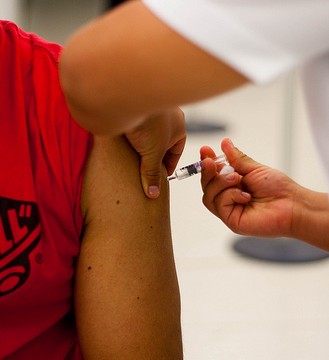A new study, published in the journal of Clinical Infectious Diseases, was conducted to see how soon a woman will begin producing antibodies to the illness if she receives the vaccine immediately after childbirth. Conclusions from the study have shown that antibodies can be detected in her blood and breast milk after one week, but will not reach higher levels until two weeks after immunization. This means there is a two week period when both the mother and baby are at risk for contracting the illness.
Why should a pregnant woman receive the vaccine?

If a woman does not receive the whopping cough vaccine during pregnancy, her baby will not receive any antibodies to the illness and will be at risk for developing the illness after birth. The CDC now recommends that all women receive the whopping cough vaccine during pregnancy. Women should receive the vaccine during the second or third trimester.
Who else should get the vaccine?
It is crucial for the expectant mother to receive the whopping cough vaccine, but all caregivers and those who will be in close constant with the baby should receive the vaccine, as well. This includes the father of the baby, babysitters, grandparents and siblings.
References:
Williams, S. (2011, October 7). Babies vulnerable if mom waits on whopping cough shot. Retrieved from http://www.msnbc.msn.com/id/44817931/ns/health-childrens_health/
Whopping cough. (2009, December 22). Retrieved from http://www.mayoclinic.com/health/whooping-cough/DS00445
DeNoon, D., & Chang, L. (2011, June 23). Pregnant women to get pertussis vaccine. Retrieved from http://www.medicinenet.com/script/main/art.asp?articlekey=146187
Pertussis (whopping cough) vaccine. (n.d.). Retrieved from http://www.cdc.gov/vaccines/vpd-vac/pertussis/default.htm